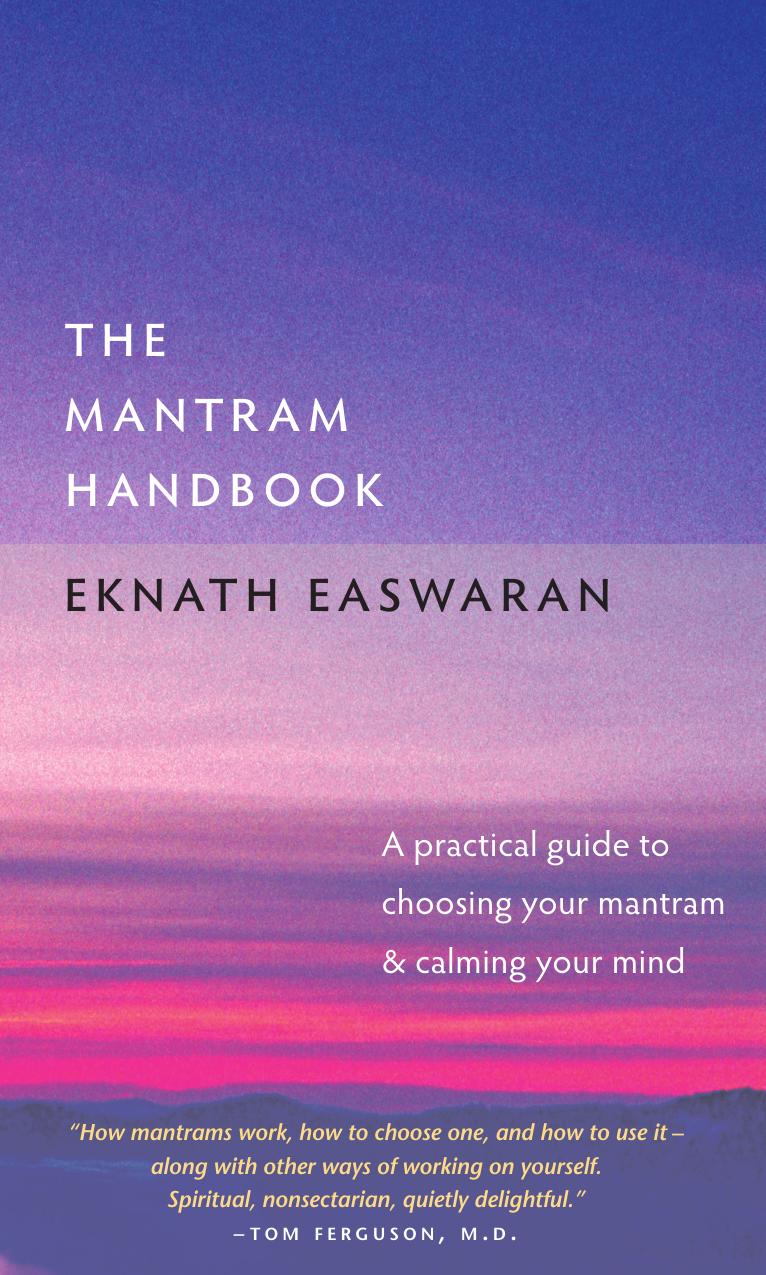The Mantram Handbook: A Practical Guide to Choosing Your Mantram and Calming Your Mind (Essential Easwaran Library) by Eknath Easwaran

Author:Eknath Easwaran [Easwaran, Eknath]
Language: eng
Format: epub, pdf
ISBN: 9781586380281
Amazon: 1586380281
Publisher: Nilgiri Press
Published: 2008-12-30T00:00:00+00:00
Harnessing Fear, Anger, & Greed
When the Bible says, “As a man thinketh in his heart, so is he,” it is telling us that the key to intentional living is in gaining mastery over the mind. The Compassionate Buddha puts the same message precisely in the famous Twin Verses:
All that we are is the result of what we have thought: we are formed and molded by our thoughts. Those whose minds are shaped by selfish thoughts cause misery when they speak or act. Sorrows roll over them as the wheels of a cart roll over the tracks of the bullock that draws it.
All that we are is the result of what we have thought: we are formed and molded by our thoughts. Those whose minds are shaped by selfless thoughts give joy whenever they speak or act. Joy follows them like a shadow that never leaves them.
“Thought” here is not just the thoughts we think with the conscious mind. It includes the workings of the unconscious as well, our fears and desires and worries and loves and aspirations. Most of the time, the vast majority of us live on the surface level of consciousness, not suspecting the storms that rage in our unconscious. We get some hint of the tremendous power of these storms when they break through to the surface in the form of fear, anger, and greed. When these get out of control, they can pick us up and hurl us about as they like, exactly as if some force takes us over and makes us do things, say things, that we would not ordinarily do.
Take fear, for example. Fear of snakes is part of our consciousness in rural India; when a villager is walking home in the twilight and sees a snake on the path ahead of him – it may not even be a real snake, just a bit of coiled-up rope – he gives a jump that would make any Olympic athlete envious. If he had stood calmly and said, “Let me see how far I can jump,” he would not have been able to cover even half that distance. Fear gives him access to a deeper level of consciousness, where he finds the power to jump.
Fear plays a valuable role here if it enables the villager to avoid being bitten by the snake, but most of the time fear, anger, and greed serve no useful purpose. They are simply power going to waste – or worse, power being used destructively. If we take an honest look at our behavior under the influence of fear or anger or the compulsion of greed, we have to admit that it is not very pretty; it is not something we are very proud of. Here is where the mantram is an invaluable ally. It can harness all this destructive power that is going to waste and transform it: fear into fearlessness, anger into compassion, and greed into the desire to be of service to those around us. It is very much like harnessing any source of power.
Download
The Mantram Handbook: A Practical Guide to Choosing Your Mantram and Calming Your Mind (Essential Easwaran Library) by Eknath Easwaran.pdf
This site does not store any files on its server. We only index and link to content provided by other sites. Please contact the content providers to delete copyright contents if any and email us, we'll remove relevant links or contents immediately.
| Acupuncture & Acupressure | Aromatherapy |
| Ayurveda | Chelation |
| Chinese Medicine | Energy Healing |
| Healing | Herbal Remedies |
| Holistic | Homeopathy |
| Hypnotherapy | Massage |
| Meditation | Naturopathy |
| Reference |
Inner Engineering: A Yogi's Guide to Joy by Sadhguru(5927)
The Power of Now: A Guide to Spiritual Enlightenment by Eckhart Tolle(4787)
Fear by Osho(4107)
The Art of Happiness by The Dalai Lama(3404)
The Ultimate Bodybuilding Cookbook by Kendall Lou Schmidt(3346)
Yoga Therapy by Mark Stephens(3242)
Ikigai by Héctor García & Francesc Miralles(3187)
The Little Book of Hygge by Meik Wiking(3098)
Why Buddhism is True by Robert Wright(2847)
The Healing Self by Deepak Chopra(2814)
Being Aware of Being Aware by Rupert Spira(2721)
Shift into Freedom by Loch Kelly(2706)
Wild Words from Wild Women by Stephens Autumn(2608)
Work Clean by Dan Charnas(2572)
Happiness by Matthieu Ricard(2536)
The Hatha Yoga Pradipika (Translated) by Svatmarama(2514)
Yoga Body & Mind Handbook by Jasmine Tarkeshi(2470)
More Language of Letting Go: 366 New Daily Meditations by Melody Beattie(2462)
Why I Am Not a Feminist by Jessa Crispin(2253)
